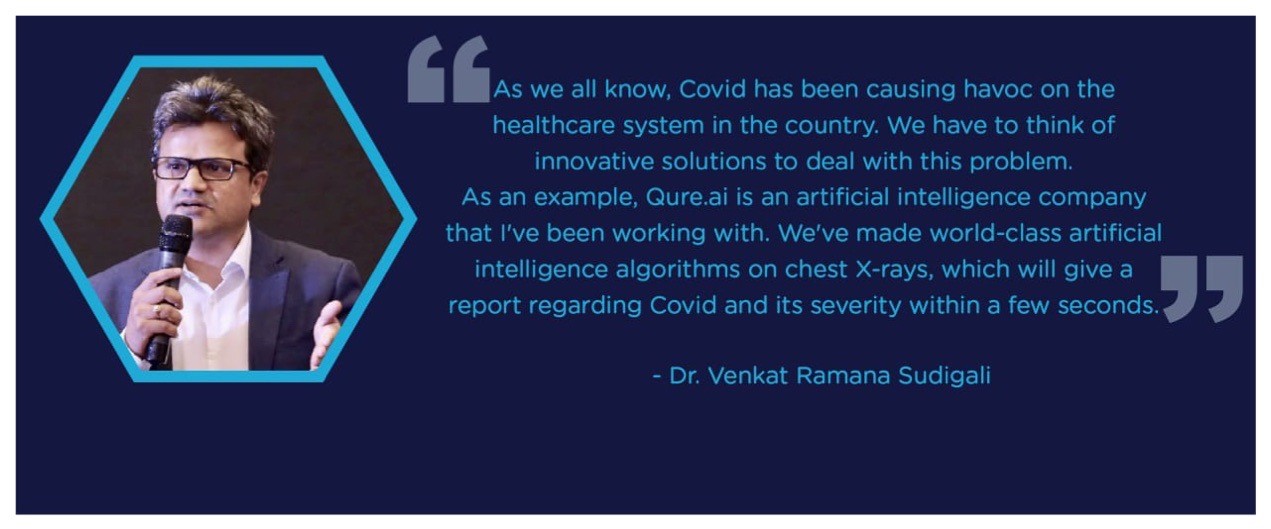
Healthcare and technology were intricately related since time immemorial. After all, what is the use of technology if it cannot help humans, especially now that the whole world is going through the Covid-19 pandemic?
There is no doubt that the pandemic has allowed patients and providers to embrace new-age technology as part of their routine healthcare. A Mckinsey consumer report in April 2020 in the US suggests an exponential increase in consumer telehealth preferences and a potential for USD 250 billion healthcare spend in the US to be virtualised.(1)
Not just the US, every other country in the world affected by the pandemic has seen an increase in using technological solutions in healthcare. Innovations in the biotechnology and pharmaceutical industry, contact tracing technology, digitalised supply chain management, blockchain-enabled platforms for data analytics and predictive modelling, and artificial intelligence in diagnostics are some other examples in this “digital healthcare revolution” that is beginning to unfold.(2)
As a radiologist, I am one of the few doctors who can “see” what’s going on inside the body, head to toe, and non-invasively. Using state-of-the-art machines on a day-to-day basis to enable accurate diagnosis and helping patients get their timely treatment, in itself, is a wonder in the field of medicine. Radiology and medical imaging were always at the forefront of healthcare technology, ever since the first CT scanner was developed in the UK in 1971.

Medical imaging hardware has developed rapidly over the past few decades with decreasing CT radiation dosages and rapid, accurate high-resolution imaging that is widely available nowadays.(3) New-generation technologies, including artificial intelligence and machine learning, has the potential to take healthcare to the next level. Augmenting machine learning algorithms with the skills, knowledge and experience of a human help us to do even better. Used appropriately, this has a great potential to reduce errors and improve patient safety and outcomes.(4) Indeed the market for artificial intelligence in healthcare is set to grow from its current value at over USD 1.7 billion in 2019 to USD 21 billion by 2026, according to research by Global Market Insights.
It is very important for all of us to think about appropriate implementation and timely utilisation of technology such as artificial intelligence and be patient-focused. In this regard, a great example is our work at Qure.ai which is developing world-class machine learning algorithms on chest X-rays for healthcare professionals to accurately diagnose and monitor Covid-19 patients. This free-to-use advanced technology is now accessible even in remote parts of India. The AI-generated report is available within seconds on mobile devices thus saving time and effort, and empowering frontline clinicians for patient care.(5) This is a great example of using state-of-the-art technology to help reduce the burden on the healthcare system while improving efficiency and clinical outcomes.
The pandemic has highlighted the need, once again, to address long-term issues in India’s healthcare system urgently. In a nation of 1.4 billion, with wide geographic, social and economic variations, appropriate implementation and usage of technology have the potential to revolutionise healthcare like never before.
(This article is contributed by AMPH Co 2021’s Dr. Venkat Ramana Sudigali, Consultant Radiologist & Director and CEO, Excell Multispeciality Hospital, Hyderabad.)

